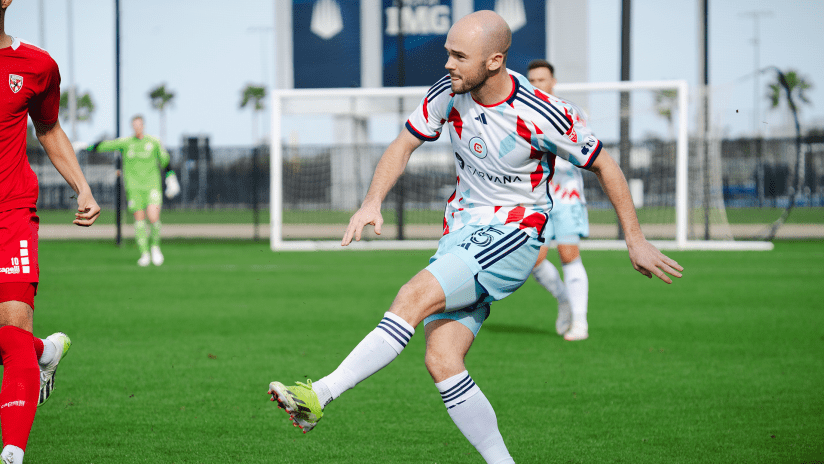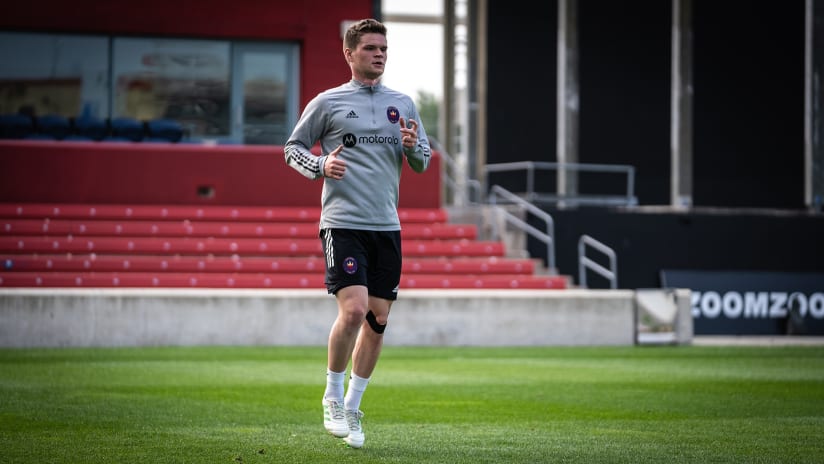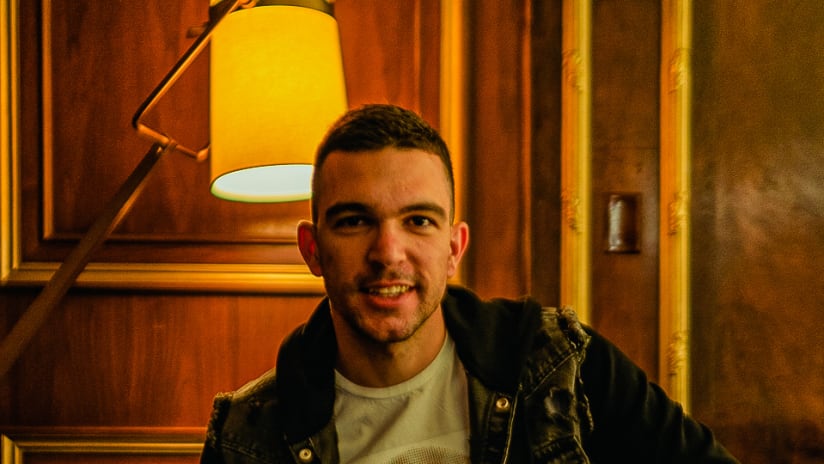After a 2016 full of new experiences, Chicago Fire defender Jonathan Campbell was able to sneak one more unique one in before his year came to a close.
In early December, he and former University of North Carolina teammate Rob Lovejoy spent four days exploring Cuba in the wake of the country’s on-going restoration of diplomatic relations with the United States. It just so happened their trip also fell within the nine-day window of mourning for recently deceased Cuban leader and revolutionary Fidel Castro, without question a time of historic significance for the country.
Upon his return, Campbell spoke with Chicago-Fire.com about his experiences taking in the country's sights and sounds, what he learned from his interactions with Cuban locals, and his overall takeaways from the trip. Hear it in his own words below and check out some of the scenes in Campbell's accompanying photo and video slideshow above.
Campbell's trip stemmed from a phone call earlier this fall from a former college teammate.
“Two months before, Rob Lovejoy called me up. We were former teammates at UNC together. He knew that we both had studied Spanish in college and we hadn’t seen each other in a while so it was a pretty good excuse to get back together. He called me up and just asked if I would like to go for it. He said he’d plan the trip, he was willing to go through and book it all and I was just going to be along for the ride. That’s how it came about.
“We had to get a Visa, and there’s 12 reasons for why Americans can travel to Cuba. Tourism is not one of them. The one that we went for was ‘people-to-people interactions’. I think for that they want to see a mutual benefit for the Americans and the Cubans, so when you go down there you’re interacting and it’s not just a one-way conversation in either direction. When we were talking to our tour guide, he would say something about how it’s done in Cuba and we would tell him about how it’s done in the U.S., so we’re bouncing ideas off one another.”
Like any travelers to a new country, Campbell and Lovejoy quickly began getting accustomed to the local residents, fare and finances.
“The first day we just got some pizza next door. We were starving at the time, and it was a personal pizza -- maybe a 10-inch pizza -- and it cost $0.50 for a pizza. So we got four pizzas, definitely over-judged it. Rob only ate one of his and I think I got through one-and-a-half. That was pretty funny when we first got there.”
“Everyone that we met was positive about meeting Americans. They wanted our relations to continue growing and improving. They were happy we were there. U.S. tourism will likely be a very big part of their economy. The one thing I will say is that, in talking with a few of the people, the perception of the U.S. can be pretty bad. What they see, I believe, is a lot of Hollywood and news that makes the front page. (Our tour guide) saw the flaws of the United States. I think they don’t get to see the positives. So I think their perception of the U.S. can be that it’s very dangerous.
At the time they booked their travel, little did Campbell and Lovejoy realize they would be present in Cuba in the immediate aftermath of the passing of the nation's most iconic figure.
“Obviously, there's so much at play when it comes to Fidel Castro and it's a complicated thing even within Cuba. There’s different groups – the young group that maybe was against Castro a bit and would like to see Cuba change, but there were also the signs we'd see -- they would have ‘Always Fidel Castro,’ ‘Live long,’ ‘Always in our mind’; you could really tell from the signs that they were very positive about Castro. Talking with the people there, a lot of them actually revered him and liked what he did in some regards. He really improved their education system, and that was one of the big things they were very proud of."
After enjoying his time sightseeing and the uneventful air travel to and from Cuba, Campbell was nothing but thankful in looking back on his offseason sojourn.
“That’s one of the main reasons we tried to go when we did, immediately after they opened it up. One – we wanted to be among the first [of our friends] there and see what it was like before things started changing. The other thing was just the fact that I could have gone to Italy or another place and when I get back, everyone says, ‘Wow, that’s awesome. Also, I went to Italy five years ago.’ Not many people we know have ever really experienced Cuba. We get to be the messengers and tell everyone about it, which we think is cool. You want the best for (the Cuban people) and I do think it’s very cool that the U.S. has improved our official relations and we’ve made it work. Hopefully it only brings more understanding and a sharing of ideas and cultures between the two countries.”




